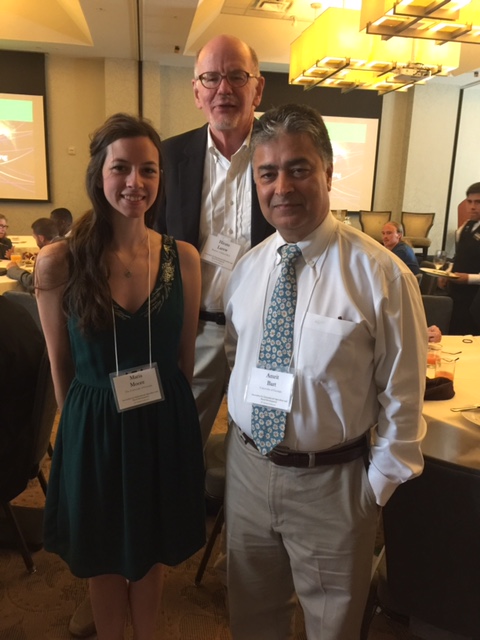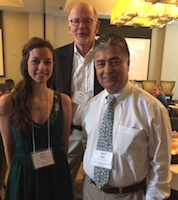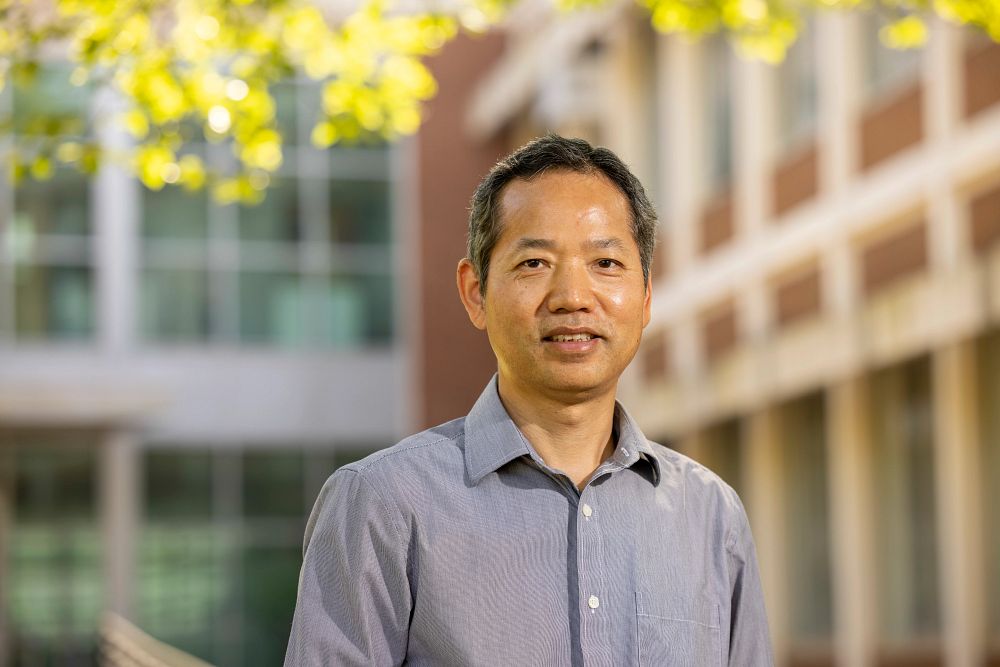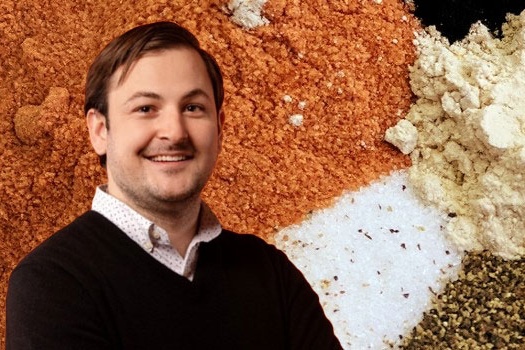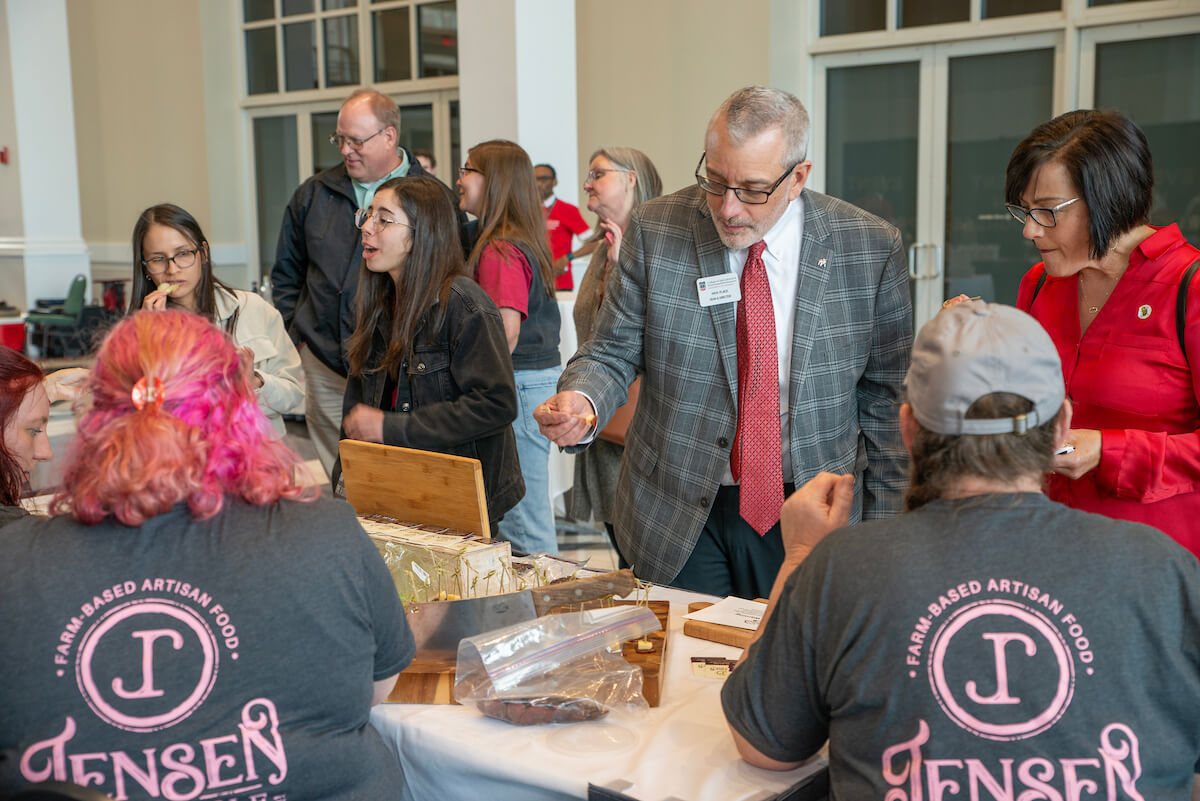When Maria Moore learned that scholarships were available to attend the Future Leaders Forum sponsored by the Association for International Agriculture and Rural Development (AIARD), she immediately applied.
As a University of Georgia master’s degree student who will defend her thesis in food science and technology this fall, Moore is contemplating her next steps. The scholarship would allow her to attend both the forum and AIARD’s annual conference in Washington, D.C., earlier this month.
Moore was disappointed to learn that she wasn’t selected to receive the scholarship, but just a few days later, she received good news — UGA alumnus Hiram Larew was providing funding for her to attend the conference.
“AIARD is a wonderful organization for those who are professionally interested in international agriculture and rural development,” said Larew, who directed programs in sustainable development and food in countries around the globe prior to his retirement in 2015 as director of international programs for the U.S. Department of Agriculture National Institute of Food and Agriculture. “By attending this year’s conference, Maria had a chance to meet lots of folks who will be important to her in her upcoming career.”
Reflecting on the two-and-a-half-day conference, Moore certainly agrees with Larew’s assessment.
“This is a very tight-knit conference of only about 125 participants, so I was able to meet almost everyone,” Moore said. “In addition, all of the meals are included in the conference, so I had the opportunity to talk in-depth with a wide range of professionals.”
Moore’s first evening was spent with students and young professionals at a career workshop led by representatives of the U.S. Agency for International Development; DAI, a 40-year-old, employee-owned global development company headquartered in Maryland; Devex, a company that focuses on connecting professionals with funding and career opportunities in international development; and Catholic Relief Services, which works with organizations around the world to help the poor and vulnerable overcome emergencies, earn a living through agriculture and access health care.
“The panelists provided helpful job search information, like the importance of tailoring your resume,” Moore said. “But they also emphasized the importance of more young people entering the field of international agriculture. They described us as the future of sustainable crop production both within the United States and around the world.”
Following that initial meeting, Moore had the opportunity to meet her benefactor and be introduced to many of those attending the conference.
“Hiram knows everyone,” Moore said. “He took the opportunity to introduce me and two other students that he sponsored to everyone at the conference.”
During the next two days, Moore heard speakers address all aspects of the conference’s theme of climate-smart agriculture, including Dawn Rittenhouse of DuPont, whose keynote address made the case for businesses’ embrace of climate-smart agriculture; panel discussions highlighting emerging research and innovation in the area of climate-smart practices; presentations of best practices by field practitioners; an address by Marc Sadler, the global lead at the World Bank; and a session focused on finding funding for promising projects.
Moore also heard a summary of a 55-page AIARD white paper, emphasizing the importance of climate-smart sustainable agriculture to improve food security, to be delivered to Congress following the conference.
“One of my favorite presentations was ‘Lightning Talks,’ where speakers had only five minutes and 20 slides to present their topic. They were fascinating to listen to and gave such great wrap-ups on subjects, like the role of insect protein in food and the importance of maintaining soil health,” Moore said. “It was a lot to take in, but I was doing my best to take notes on all of the presentations.”
In reflecting on the conference, Moore said she gained personal insight into her own carbon footprint and learned how companies reduce their impacts on the climate.
“The U.S. has the second-biggest carbon footprint of any country in the world, and we waste 40 to 50 percent of the food we produce,” she said. “I came away not only aware of what companies can do to change those numbers, but that there are things beyond recycling that I can do.”
She also came away having met both fellow students and long-time professionals, and with some clarification of her own goals.
“As far as my career, I want to determine what I’m looking for that will lead me on the path of working internationally,” she said.

